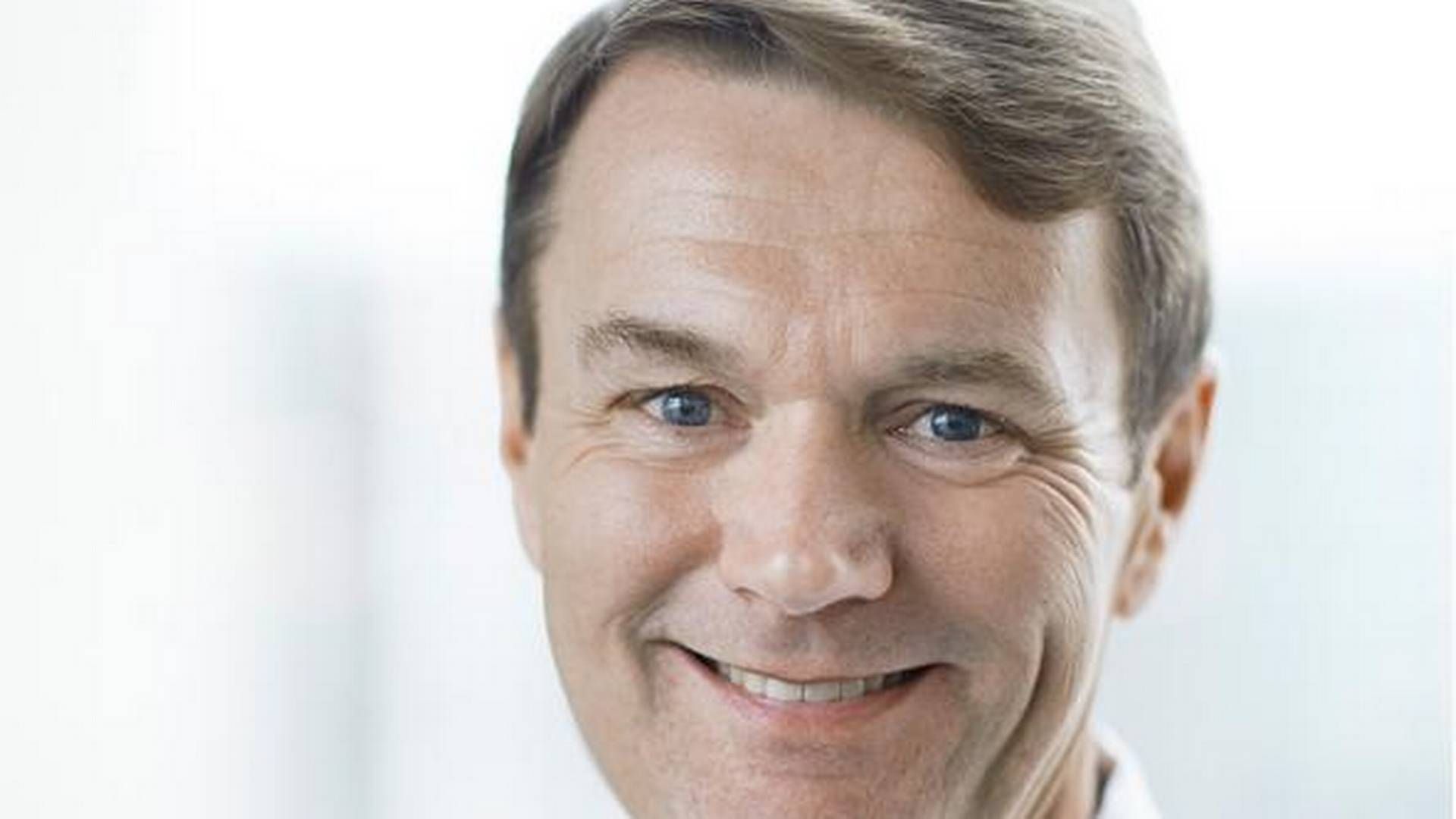Bankinvest's major venture seen losing money in first 10 years

The chief executive of Bankinvest, Lars Bo Bertram ventured into new territory when as the asset manager announced earlier this year his firm began work on an investment app to compete with Danske Bank's June.
The experience is a new one for the CEO, who has never before entered a project with no certainty about its revenue-generation potential.
"The only thing I can say for sure is how much it will cost us to develop Darwin. This is the first time I have been involved in a project where I have so little knowledge of the kind of customers we will have," Bo Bertram tells AMWatch.
"June is ahead of us. But nobody else has really made an attempt before, so we don't know if it will turn out to be large or small. But we know that it will be expensive to develop. The challenge is that it will most likely be a loss-making venture for the first 10 years. It is costing millions to build this," he adds.
IT expenses weigh heavy
June and Darwin are meant as less expensive alternatives to portfolio management at a bank, and the lower expenses are made possible because a robot will replace the bank's investment adviser and invest via passive funds – more specifically ETFs.
Bo Bertram explains that the expenses relate in particular to IT infrastructure:
"Making an application that can invest cost efficiently for our customers, get them to set up accounts and deposits, exchange information with data centers, display it to customers, make sure that it is possible to invest, and keep out pirates, viruses, and other unpleasantness. It costs a considerable amount of money," he says.
Bankinvest is developing Darwin for the 39 Danish banks it is jointly owned by.
"It is less costly for our owners to have Bankinvest develop a shared solution like Darwin than everyone developing one each. In this way, we can help prevent them from losing customers who want a product without advice," says Bo Bertram.
This also means that if a customer at, for example, Spar Nord uses Darwin, the customer's investment deposit will be at Spar Nord.
"The banks want their customers to stay with them and not drift away to a competitor. So it makes sense," Bo Bertram says.
Minimum investment
Neither Bo Bertram, nor the banks that own Bankinvest are shy about the fact that Darwin is a competitor to June.
In Danske Bank's June, the customer's risk profile and investment horizon are determined by questions that the customer answers in the app. Based on the answers, the money is invested in five different passive funds controlled by investment robots (ETFs).
The idea is that Darwin will also help the customer get started on investing without help from an investment adviser, and then invest the money in ETFs. June's minimum investment is currently DKK 100, and Danske Bank is in the process of raising the upper limit, which is currently DKK 300,000.
"We will most likely set our minimum investment at DKK 1000, and if we get 10,000 customers, it will cost more than a million per year. So we hope customers will invest more," Bo Bertram says.
A drop in the savings sea
Danske Bank launched June in May, and the bank's Head of Wealth Management, Tonny Thierry Andersen, has told Berlingske Business that at the end of the month of June, the system had 8,000 customers, who by the end of July had invested DKK 138 million. According to Danske Bank, this means that the average customer invested about DKK 18,000.
"It's a drop in the savings ocean. If the market doesn't somehow settle down so this becomes a generally-accepted method of working with savings, then it will never become anything big," says Bo Bertram.
At Danske Bank, however, Thierry Andersen is confident. He refers to the fact that the average June customer went from investing DKK 2,900 in the beginning to now averaging DKK 18,000.
"I believe that we hit gold. Several of our competitors have said that they have something similar underway. We have already launched, and that is a good starting point," Thierry Andersen told Berlingske Business.
A long way to break-even
According to Bo Bertram, one of the challenges is that big marketing campaigns meant to pull in customers can quickly result in an expensive product.
"If it costs DKK 5000 to get the customer, and you have a gross income from the customer of 75-100 basis points, then it might take 15-20 years before you break even on that customer. So that puts a damper on the acquisitive approach,” says Bo Bertram.
The US is further ahead in the field, and over time, US customers' expenses have fallen as low as about 0.30 percent.
June's average expenses are 0.8 percent. Another new player, Nord Investments, requires a minimum investment of DKK 30,000, but then only takes 0.75 percent for investments up to DKK 100,000 and lowers the price to 0.5 percent on investments between DKK 100,000 and 300,000. If the investment is more than DKK 300,000, Nord Investments lowers the price to 0.35 percent.
"If you ask me how this should be priced revenue-wise, then I would say based on an option-pricing theory. If we really do make money on this within the next five years, I would be very surprised. But I believe that it is necessary for us and our owners to have Darwin," says Bo Bertram.
The plan is for Darwin to launch in early 2018.
This is around the same period in which the last part of the EU directive MiFID II will take effect. The new rules entail, among other things, that banks will be required to provide so-called "quality-enhancing services” to investment customers. This means that the bank must at least once a year contact the customer for the purpose of counseling.
English Edit: Marie Honoré













